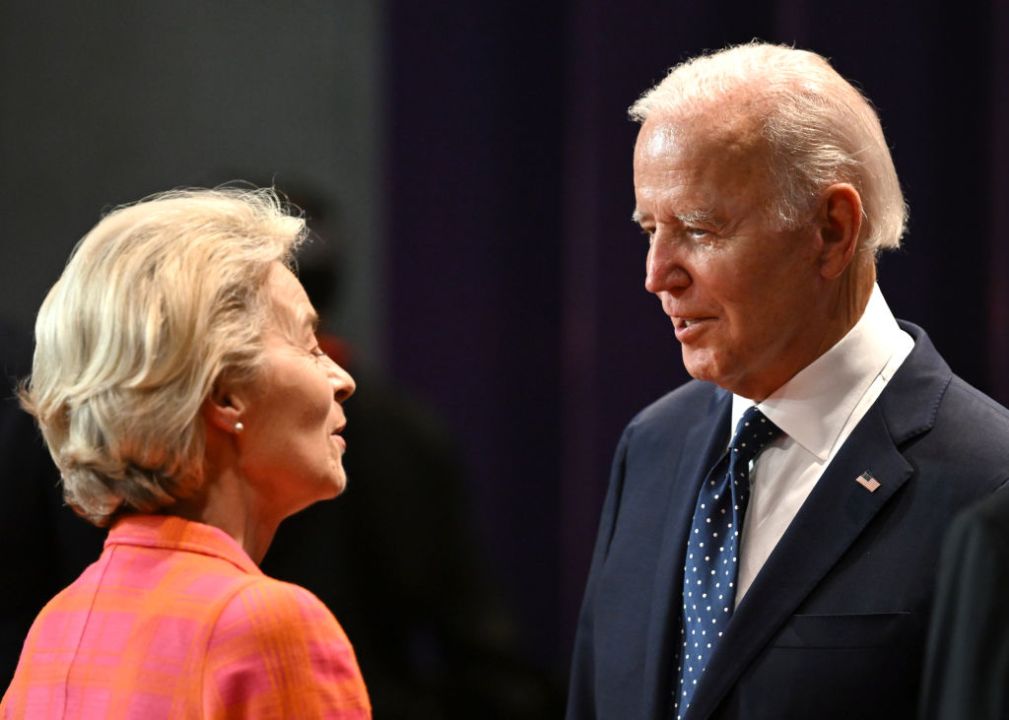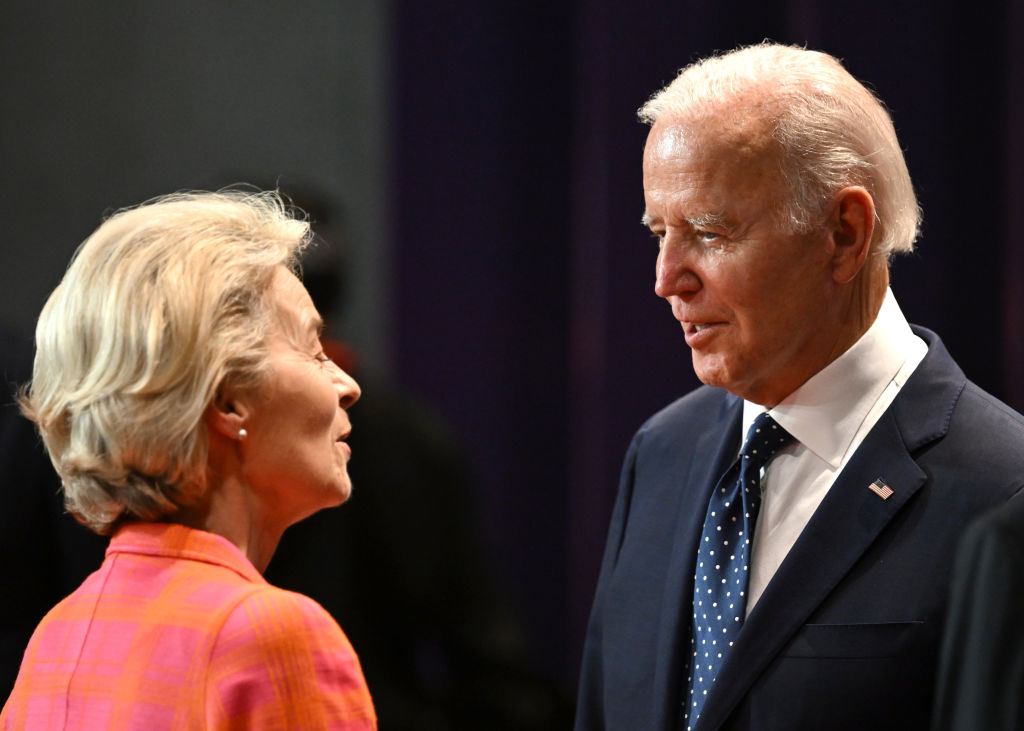Davos this year marked the start of a great economic divorce of the United States and Europe. Katherine Tai, the US trade chief, said that globalised capitalism is not working anymore. It leaves workers behind and gives fuel to populists, she said. Really, the Biden administration wants reassert US dominance in the world, and is using the country’s economic weight to do it. The Europeans, meanwhile, seem happy to become more protectionist too, with France’s Europe minister Laurence Boone calling the new US stance a ‘wake-up call’ and saying that Europe should respond in kind. Europe’s leaders are reacting to the reality that, with high energy prices, their manufacturing cannot remain competitive without tariffs.
The last time Europe and the US put up trade barriers against each other, the world went into the Great Depression. We’ll soon find out what happens this time around. What’s certain, though, is that it puts Britain in a perilous place. Britain is at the centre of this trade war, and it could tear the country’s economy in two. Its top four trade partners are the US, Germany, the Netherlands, and France. If Europe and America get into a trade war, Britain will be forced to pick a side.
Looking just at economic statistics, Britain should side with Europe. While Britain’s relationship with the EU is tense after Brexit, and its ties to the US – especially in foreign policy – are much deeper than those on the Continent, trade between Britain and the United States in 2021 accounted for 13 per cent of total trade, while trade between Britain and the EU made up nearly half of the total. Britain, though, would burn a lot of bridges siding with Europe against the United States. The large finance industry in London needs access to the European market.
It’s not clear, either, what more the US can offer Britain economically. When a trade deal between the two countries was discussed, the Americans seemed mainly concerned with sending their subpar food over to British shores. The US quickly found that, oddly enough, British people are not interested in chlorinated chicken and pink slime. The recent spike in LNG imports from America cost 40 per cent more than the piped gas that once flowed from Russia into Europe. No doubt the LNG imports have staved off an even worse energy crisis than Britain is currently facing, but buying this gas at such a high price does not seem like a very good deal.
So what, then, are Britain’s options? The two most obvious are to either get closer to the US, and try to get the best trade deal possible, or to rejoin the European Union – or, at the very least, the European economic bloc. Alternatively, Britain could try to play Greece to America’s Rome and make the case that this trade war is not in America’s interest. It won’t improve its military, diplomatic, or economic power. It will weaken it. There is currently no country making that case to America. Britain could be well-placed to.
Another alternative is for Britain to go it alone and sign bilateral trade deals wherever possible. Britain could, unlike other developed economies, choose not to start trade wars and instead strike deals with anyone who wants one. It’s the sort of thing former prime ministers Liz Truss and Boris Johnson would have pushed for, and isn’t such a bad idea. It would be an attractive position for post-Brexit Britain, but it will undoubtedly frustrate US-UK foreign policy collaboration. China is Britain’s fifth largest trade partner. Would America allow them to be its fourth, third, second or first?
There are no easy fixes for Britain. It is stuck in the middle. Its leaders are going to have to seriously consider where to take the country from here. They should not allow themselves to be overcome by the same protectionist obsessions that are popular across the Channel and the Atlantic. At least British pragmatism and rationalism will come in handy.







Comments